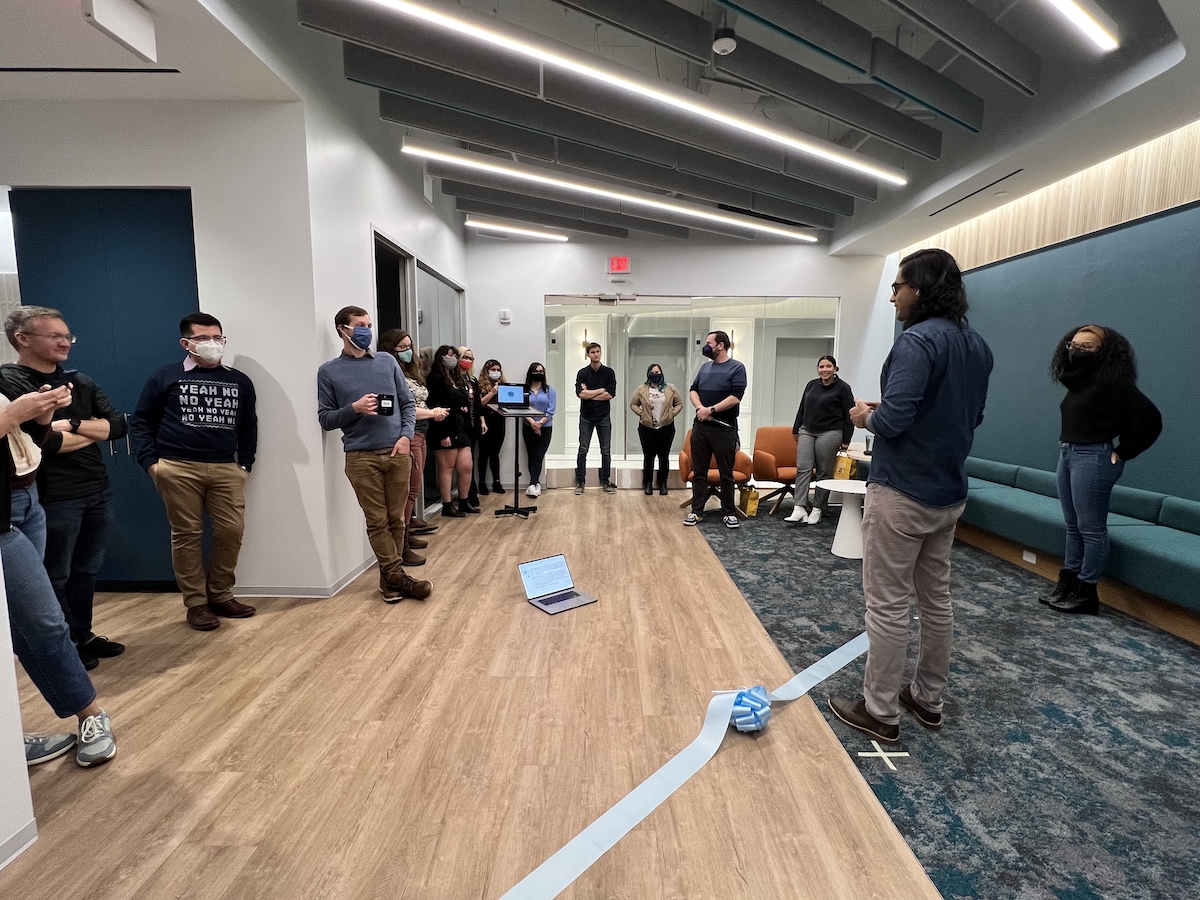As of today, the tech union movement in DC has a new player.
In a letter to CEO Rohan Bhobe, workers at Nava PBC, the DC-based civic tech company, announced the formation of a union. As of Thursday, 171 employees out of 250 total have joined to form Nava United, with the assistance of the local tech chapter of the Office and Professional Employees International Union (OPEIU).
In the letter, union leadership says it hopes collective bargaining efforts will increase pay transparency, equity, employee retention and attract new talent. For now, they’re asking for voluntary recognition from leadership, meaning workers will not need to take a vote in favor of formally establishing a union at the company.
Workers have been organizing for about two years. Sean Fern, a senior engineer at Nava and union organizer, said they first joined the union a year ago after a period of growth and frequent hiring at the company. (The organizers didn’t share a specific count of how many Nava employees have been hired in recent years.) As the company continues to grow, Fern believes a union can provide stability, knowing that certain benefits are sticking around. Especially considering Nava’s work in government contracting, they’re hoping for more transparency around policy work and how that impacts the tech being built.
“Why I’d love to have a union is, it is just that initial step of that right to have bargaining, the right to to be able to be in those conversations about how policy is made,” Fern told Technical.ly.
Technical.ly reached out to Bhobe for comment on the union formation. On Friday, the company and Nava United shared a joint statement with Nava United that they would be “moving forward together through a voluntary recognition process.”
“The history of union negotiating processes suggests that it can be inherently adversarial, but I don’t believe it has to be approached that way,” Bhobe said via the statement. “One of Nava’s values is progress takes work, and as we go through this process together, deliberately and thoughtfully, we will continue to maintain a shared commitment to building a more effective organization for our staff, clients, and the people we serve, and to respecting one another as colleagues who are doing something hard together — making government services simple, effective, and accessible to all.”
Unions, for me, represent a stabilizing force that the tech industry really needs.
RV Dougherty, an organizer from OPEIU, said organizing in the tech sphere is a powerful and connective move that employees can make. Often, they said, tech employees don’t think of themselves as a worker-specific industry, or forget that there are a number of positions beyond engineers and product designers that make up a tech company. But when workers of all levels come together to create something like a collective bargaining unit, they said, it builds bonds of solidarity across roles — or even class structures — that can create a better working environment.
“That [collaboration] is incredibly transformational for the tech sector in terms of creating some checks and balances,” Dougherty said. “And it improves the products that people are building when workers, particularly marginalized workers, feel safe to speak up in how products are being designed, and that means the thing they’re building will be more inclusive and accessible.”
Employees organizing at Nava are only the latest in a few tech moves. Currently, a union election is underway for 600 tech workers at the New York Times. In DC, employees at geolocation tech company Mapbox tried unsuccessfully to form a union in 2021 but were followed up by the voluntary recognition success of the Code for America’s union efforts. In non-tech moves, local chains such as bookstore Politics and Prose have also moved to unionize over the past year.
Fern said they’re hopeful for the success of Nava United. Across the board, they noted, many tech workers are seeking the stability of unions in job-seeking, because they don’t want to find a new job in order to find raises or boost benefits.
“Unions, for me, represent a stabilizing force that the tech industry really needs,” Fern said. “The industry as a whole is getting older as far as workers and I think with that maturity comes a sense of wanting a place where you don’t have to jump ship quite so often.”
Join our growing Slack community
Join 5,000 tech professionals and entrepreneurs in our community Slack today!
Donate to the Journalism Fund
Your support powers our independent journalism. Unlike most business-media outlets, we don’t have a paywall. Instead, we count on your personal and organizational contributions.

When global tech association CompTIA spun off its nonprofit arm, the TechGirlz curriculum went dark

DC introduces tech to prevent school vans from speeding

Dismantling the Dept. of Education could steer more people to nontraditional career paths


